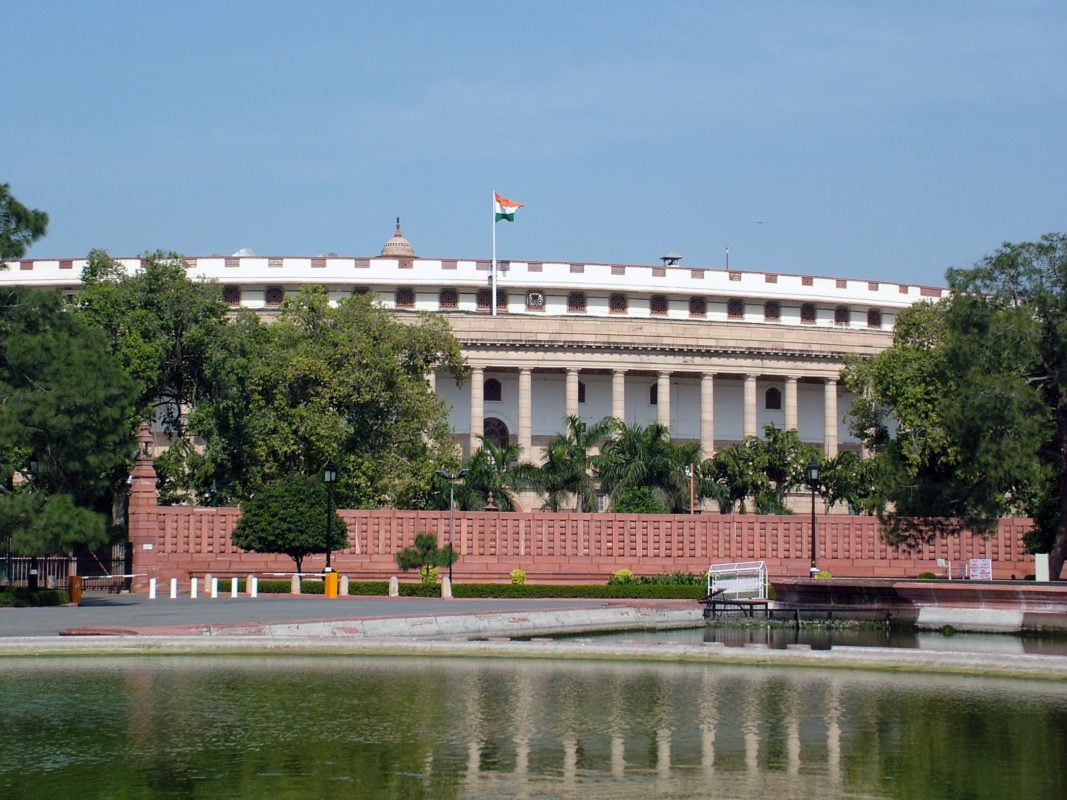
India’s Ministry of New and Renewable Energy (MNRE) has issued a clarification in its guidelines for tariff-based competitive solar procurement implying that a change in duties will henceforth be covered as a ‘Change in Law’, which would give developers protection in case a safeguard, anti-dumping or any other duty is imposed.
Vinay Rustagi, managing director of consultancy firm Bridge to India, told PV Tech that the clarification is desirable in general and would bring welcome long-term comfort to the private sector, but it still leaves uncertainty around many of the tenders that have already been issued, which currently represents more than 11.7GW.
Try Premium for just $1
- Full premium access for the first month at only $1
- Converts to an annual rate after 30 days unless cancelled
- Cancel anytime during the trial period
Premium Benefits
- Expert industry analysis and interviews
- Digital access to PV Tech Power journal
- Exclusive event discounts
Or get the full Premium subscription right away
Or continue reading this article for free
While the sector has heard several times from power minister R.K. Singh and MNRE officials that PV projects already bid out or tendered would be exempt from the looming threat of anti-dumping or safeguard duties should they be brought in, the industry has been desperately waiting for confirmation in writing.
The new clarification cited Clause 5.7.2 in the guidelines, which describes any change in the rates of any taxes, which have a direct effect on a project, as a ‘Change in Law’.
It said that in order to bring more clarity and remove uncertainty, the term 'change in the rates of any taxes' in that Clause includes ‘change in rates of taxes, duties and cess’.
This means that in the case of a change in duties, the solar power generator or procurer shall be entitled to compensation by the other party.
However, Rustagi said: “The problem is that it doesn't do anything in the immediate run, because we have huge uncertainty about safeguard duty. In such a scenario, if the risk is passed on to DISCOMs, they will simply not go ahead with the tenders as is already happening right now. Even if they accept this risk, the ongoing tenders would have to be either amended or re-issued with these revised provisions again causing massive delays to the process. It is really not clear in terms of which of the procurement agencies, SECI or state-level will actually take these guidelines on board and issue clarifications before any further auctions are held. So the long-term clarity is good but short-term immediate clarity is still not available.”
He said the position of projects bid out before the announcement of duties is still unclear – adding: “That is something which the market needs much more desperately right now.”
Furthermore, the guidelines state that compensation from the ‘Change in Law’ would be determined and made effective from a date decided by the appropriate Commission.
Rustagi said: “Change-in-law provisions are always very tricky, as even though the risk may be passed in theory to the Discoms, but the amount of compensation has to be determined by the respective regulator and that process in itself – in terms of what is the actual impact and what is the amount of compensation to be payable to the developer – that process can be very lengthy and complex.
“So yes, from a principle point of view, it’s good to have this clarity, but again operationally and procedurally it will still be a challenge for the developers.”
Uncertainty around the threat of duties issue has seen tenders held up and even an uptick in utility-scale solar tariffs. Last week, Gujarat, which has high irradiation and whose Discom has the highest credit rating in India, saw winning tariffs hover around three rupees per unit, around INR0.35-0.40/kWh higher than the last tender issued by the same authority, GUVNL, last year.
The original anti-dumping petition has been terminated, but a new one is expected to be filed by the petitioners, the Indian Solar Manufacturing Association (ISMA), while the threat of a Safeguard Duty still looms.






